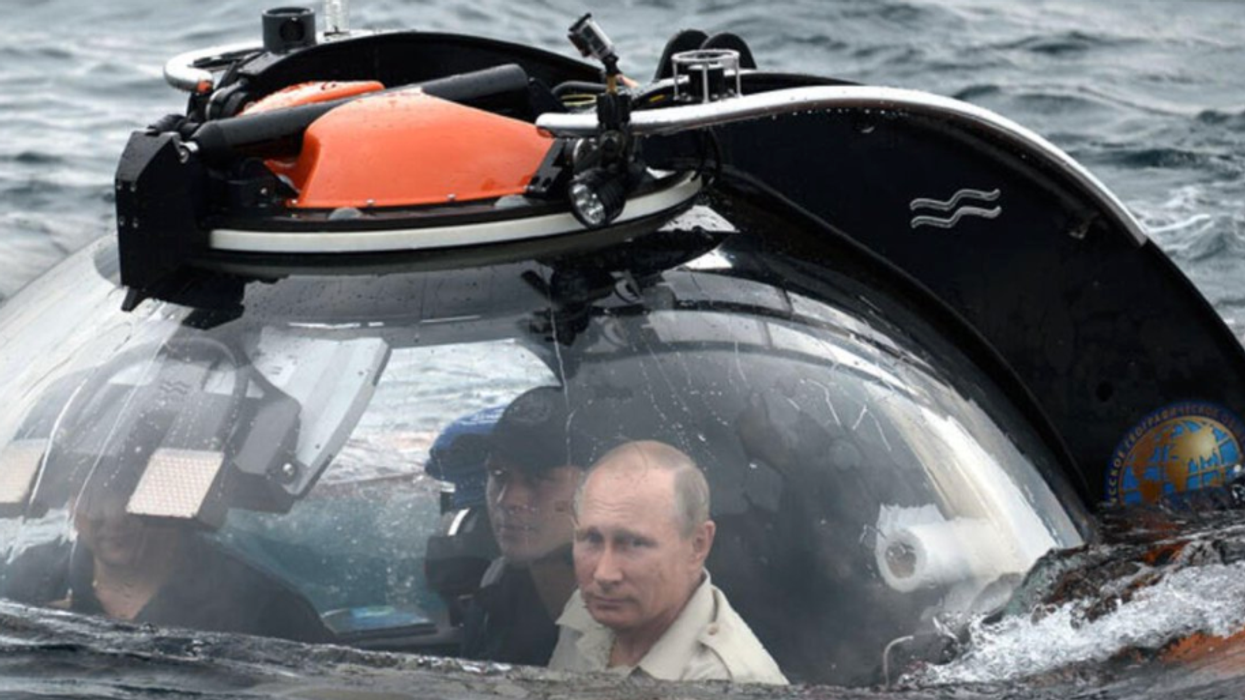'A really big hole': Sabotage suspected as Russia's Nord Stream oil pipelines spew methane

An investigation into the mysterious damage is ongoing amid fears of pollution and another supply shock that could worsen Europe's energy crisis as winter nears.
European officials raised the strong possibility of sabotage on Tuesday after the Nord Stream pipeline system that transports Russian gas under the Baltic Sea suffered major leaks, damage that could spark massive pollution and further exacerbate the continent's energy crisis as winter approaches.
"The damage that occurred in one day simultaneously at three lines of offshore pipelines of the Nord Stream system is unprecedented," Nord Stream AG, the Switzerland-based company that operates Nord Stream 1 and the not-yet-complete Nord Stream 2 pipeline, which still contains gas.
Deliveries of gas through Nord Stream 1, meanwhile, were cut off by Russia earlier this month, a move Europe alleged was retaliation for sanctions imposed in response to Moscow's ongoing assault on Ukraine.
Both Nord Stream 1 and 2 were damaged Tuesday, the pipeline operator confirmed.
According to the Danish Defence Command, which discovered the leaks from the air via military helicopter units, "Nord Stream 1 has two leaks northeast of Bornholm, Nord Stream 2 has one leak south of Dueodde."
Danish Defence also released video footage of gas from Nord Stream 2 bubbling at the surface of the Baltic Sea:
Given the near-simultaneous timing of the leaks, Denmark Prime Minister Mette Frederiksen told reporters Tuesday that "it's hard to imagine that these are coincidences."
"We can't rule out sabotage," said Frederiksen, who didn't speculate on who could be responsible.
Describing the extent of the damage, the Danish energy agency said: "This is not a small crack. It's a really big hole."
Kremlin spokesman Dmitry Peskov likewise voiced concern about the leaks, calling news of the damage "very alarming."
"There is some damage in the pipe in the Danish economic zone, it is not yet clear what kind," said Peskov. "The pressure has dropped considerably. This is an unprecedented situation that needs to be dealt with urgently."
Peskov also hinted at the prospect of sabotage, saying Russia is not "excluding any options."
Reuters noted that "both pipelines have been flashpoints in an escalating energy war between European capitals and Moscow that has pummeled major Western economies, sent gas prices soaring, and sparked a hunt for alternative energy supplies."
In February of this year, just prior to the Russian invasion, U.S. President Joe Biden said Nord Stream 2 would not move forward if Russian President Vladimir Putin went through with an attack on Ukraine.
"If Russia invades," Biden said during a joint news conference with German Chancellor Olaf Scholz, "then there will be longer Nord Stream 2. We will bring an end to it."
Asked by a reporter how he would achieve that, Biden responded, "I promise you we will be able to do it."
German officials reportedly believe the pipeline leaks are the result of a targeted attack.
On top of the potential impacts on European nations' energy crisis, which critics say stems from their over-reliance on Russian fossil fuels, damage to the Nord Stream pipeline system could have major climate implications.
"This may not look as dramatic as an oil spill, but it's even more dangerous for the climate: that methane is going straight into the atmosphere," noted Jamie Henn, director of Fossil Free Media.
Tim McPhie, a spokesperson for the European Commission, said Tuesday that the pipeline damage "hasn't affected the security" of Europe's gas supply "as yet."
"Deliveries have been zero on Nord Stream 1 anyway, and North Stream 2 is not yet authorized to operate," McPhie continued. "We are also analyzing the potential impact of these leaks of methane, which is a gas which of course has considerable effects on climate change, and we are in touch with the member states about the potential impact on maritime navigation."
from Alternet.org https://ift.tt/fJED1PQ
via sinceretalk
Comments
Post a Comment